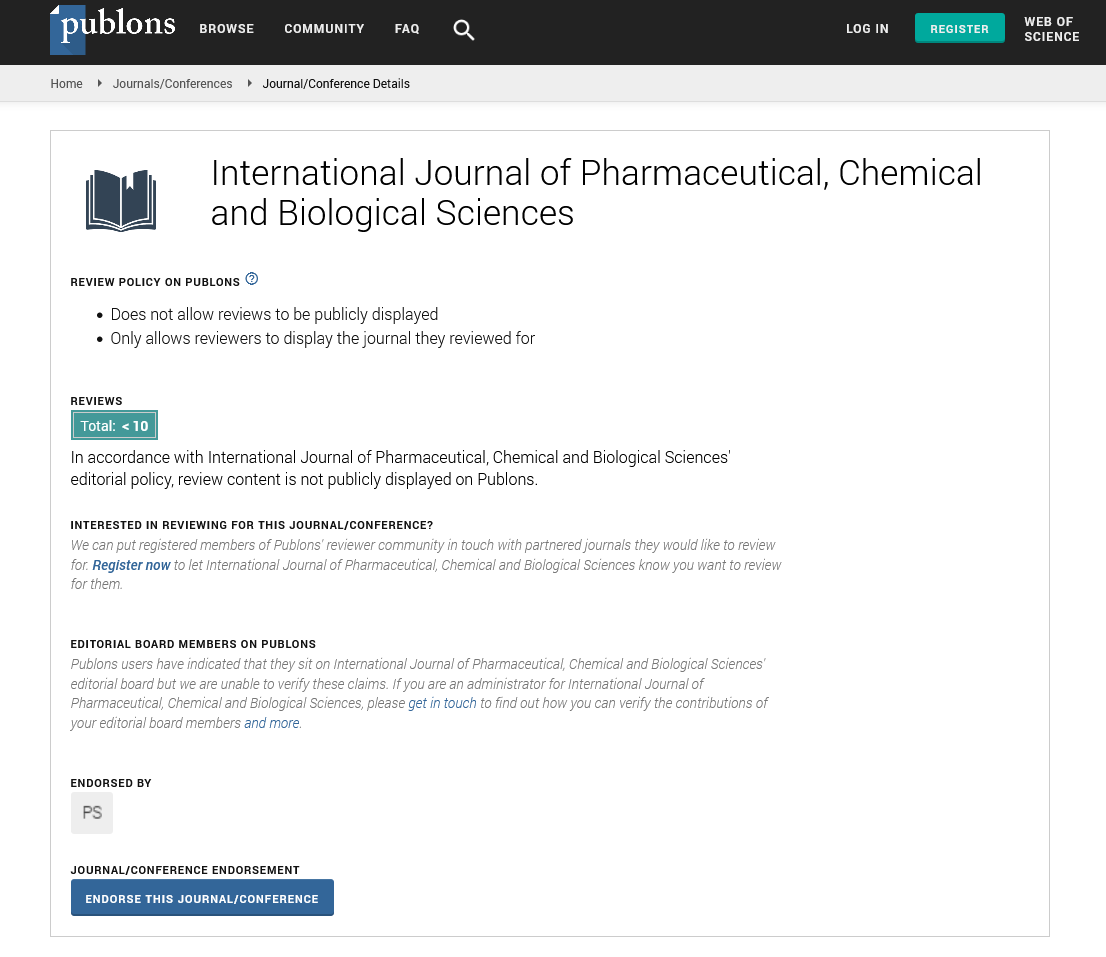Abstract
Author(s): Sujith Abraham* , A. Minu B Pattasseril and Jeeva James
The mucoadhesive cefaclor monohydrate microcapsules are prepared by ionotrophic gelation method using different concentration of sodium alginate ,xanthan gum,guar gum and pectin in combination with 0.8% chitosan using cross linking agent calcium chloride. The microcapsules were evaluated for percentage yield, capsule size, entrapment efficiency, swelling index, mucoadhesion study by in vitro wash off test and scanning electron microscopy [SEM] analysis were investigated. Infrared spectroscopy studies (IR) confirmed the absence of any drug interaction with polymers. DSC analysis revealed that the drug was uniformly distributed in the microcapsule. The mean particle size increase with increasing the polymer concentration .SEM photomicrograph showed microcapsules with rough surface and oval shape. The entrapment efficiency of all formulations was in the range of between 95% to 99%.The swelling index decreased with increase in sodium alginate concentration. The results of in vitro mucoadhesive showed that the microcapsules were remained adhered to mucus membrane for longer period of time .In vitro drug release studies were performed in simulated gastric fluid [SGF,pH 1.2] for 2 hrs and phosphate buffer [pH 6.5] for 10 hrs release from the microcapsules was found slow releasing and following zero order kinetics, Korse mayers & Peppas model. The diffusional exponent n, specified anomalous transport and non fickian type and controlled by diffusion through swollen matrix. The above observations suggested that the cefaclor monohydrate can be developed as mucoadhesive drug delivery system with sodium alginate ,xanthan gum, chitosan (7.5:1:0.8).

